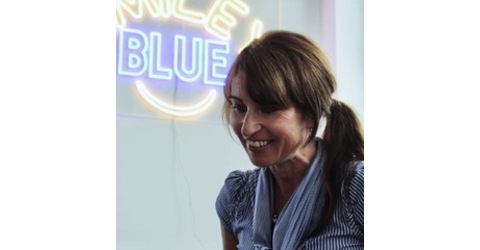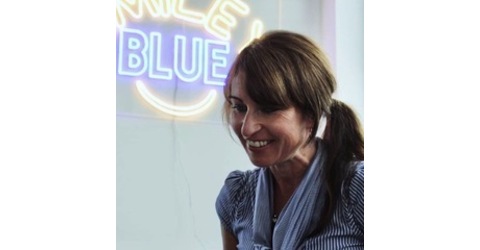It happens far more often than people realise. A parent dies, a will exists, but somehow the family "scapegoat" ends up empty-handed while siblings divide up the assets of the family nest to benefit themselves. This troubling pattern is now being recognised as a common extension of toxic family dysfunction that continues even after a parent's death.
According to a 2023 study by the Family Dynamics Research Institute, nearly 40% of families with identified "scapegoat" dynamics reported inheritance disputes, compared to just 12% in families without such patterns. Estate lawyers report that contested wills frequently reveal long-standing family power imbalances that become illuminated during inheritance proceedings.
The Biblical Roots of Scapegoating
The original term "scapegoat" comes from Leviticus 16 in the bible, where the high priest would symbolically transfer the community's sins onto a goat before sending it out into the wilderness.
"Aaron shall lay both his hands on the head of the live goat, confess over it all the iniquities of the people of Israel... putting them on the head of the goat, and sending it away into the wilderness... The goat shall bear all their iniquities on itself to a remote area." Leviticus 16:21-22
This ancient ritual mirrors what happens in families where one member is selected to carry all the shame and guilt for the family's problems. As the biblical scapegoat was burdened with sins it didn't commit, the family scapegoat bears all the projected guilt and shame that others refuse to face.
Proverbs 22:28 "Do not move an ancient boundary stone set up by your ancestors." - Disregard for a parent's will not only harms the disinherited but violates core principles of honour and respect for the deceased.
How It Typically Plays Out
Research into these toxic family dynamics shows several common scenarios:
- Punishment for Standing Up: Parents sometimes cut a child out of their will simply because that child dared to challenge the obvious unjust family patterns or tried to set healthy boundaries.
- The Cost of No Contact: Children who've had to distance themselves from harmful parents and siblings for their own wellbeing often find themselves disinherited as their punishment.
- Entitled Siblings Take Control: The family "golden child" believes they deserve everything and works to ensure the scapegoat gets little or nothing – either by influencing parents while alive or manipulating the process after death.
The Emotional and Practical Impact
Scapegoated family members – already often struggling with grief, anxiety, depression, or PTSD from the years of family trauma – typically need financial support the most, while their more financially stable siblings feel entitled to take everything. This creates both practical hardship and deepens their emotional wounds.
For most scapegoats, their pain isn't primarily about the material possessions or money lost. What cuts more deeply is the deliberate exclusion and the painful message it sends: "You don't matter and you never did." The inheritance becomes a final, tangible symbol of the family's rejection.
The timing compounds the injury. Many scapegoats harbor the hope that after a parent's death, sibling relationships might improve and old wounds might heal. Instead, they find the inheritance process only hardens the family dynamics, creating a permanent record of their exclusion when reconciliation seemed most possible.
One scapegoat shared: "I'm not particularly attached to my mum's belongings. It's the fact that my sibling actively worked to shut me out of what my mother's will clearly stated was mine. It's knowing that the story they tell themselves about me – that I somehow deserve less than them – still continues even now."

Finding a Way Forward
People who've survived this double blow – family scapegoating followed by inheritance theft – often find more healing in working to let go entirely than in fighting against an already corrupted system. While legal options exist when a will is being ignored, many discover that chasing these costly battles continues to keep the cycle of their family drama and pain ongoing.
Legal Considerations
While healing yourself emotionally is paramount, understanding your legal options is also important. If you believe a will has been improperly executed or that undue influence was used to change a will, you can carefully consider:
- Consulting with an estate lawyer who specialises in contested wills.
- Requesting copies of all legal documents, including previous versions of the will.
- Documenting any unusual circumstances around the will's creation or execution.
- Setting a time limit for yourself on legal pursuits to protect your wellbeing.
- Weighing up the huge the emotional and financial costs against potential benefits before proceeding.
Healing Strategies
- Therapy and Support: Work with therapists, coaches and join support the groups who specialise in family trauma, validate your experience and understand the unique dynamics of scapegoating.
- Build New Connections: Invest in relationships with chosen family or with those who truly value you for who you are.
- Financial Independence: Focus on building your own financial security rather than depending on inheritance.
- Setting Boundaries: Establish clear boundaries with any remaining family members to protect your emotional wellbeing.
- Grieving the Loss: Allow yourself to grieve not just the lost inheritance but the family relationship you deserved but never had.
When inheritance disputes arise, the scapegoating pattern starts to reach its final conclusion—the scapegoat, having carried all the emotional burdens of shame for years, is excluded from their rightful share, which serves to reinforce the false narrative that they somehow deserved less than their sibling.
The truth many scapegoats eventually accept is that no inheritance can ever repair the deeper wound, the missing love and recognition that should have been their birthright all along.
While it can be painful to watch others benefit materially from your exclusion, due to their narrated version they hold about you, remember that what you carry forward is far more valuable in the long term. You have your integrity, values, authenticity, and self-respect.
These qualities form the foundation for building a healthier future free from the toxic dysfunctional family. Many scapegoats ultimately find that creating their own legacy built on faith, genuine connections and personal growth becomes their most meaningful inheritance.
Family Scapegoating Abuse (or Family Scapegoat Abuse) are terms coined by Rebecca C. Mandeville, LMFT, CCTP. They are based on over 15 years of qualitative and quantitative research studies on the abusive aspects of scapegoating dynamics impacting child victims and adult survivors. To learn more about FSA and its effects and access resources supporting FSA recovery, visit her website at https://www.scapegoatrecovery.com.

Join our Facebook support group for Narcissistic Family Scapegoating Abuse & Recovery HERE








